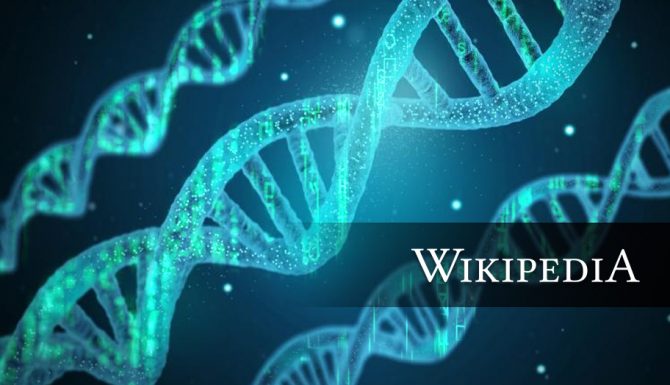Start-up company Catalog was able to pack the entire Wikipedia in English, into DNA strands, says CNET. This came after the company has completed the development of its first DNA writer.
How it works
Catalog announced that it was able to fit all 16 gigabytes of the English-language catalog of Wikipedia into DNA storage. The data writing device used for the project is able to write 4 megabits of information per second. The device writes directly onto the strands.
However, the machine used to write the information on the molecules are bulky and is not accessible for general use.
The technique for storing data in DNA is complicated, according to CNET. The company developed prefabricated synthetic strands, which are distinguishable from those of humans’. The synthetic molecules are shorter but capable of storing more information.
To store and read the info, the firm uses a system that uses huge amounts of data sets. While conventional methods remain to be unused to retrieve the info, Catalog has molecular probes to read the sets. CNET noted that the system works like random-access memory storage.
The technology may not replace conventional storage options anytime soon. Nevertheless, Catalog is confident that consumers who have archiving needs may find the development quite useful.

Prospective clients
In fact, the tech firm already partnered up with Arch Mission Foundation. This organization aims to “store human knowledge not just on Earth but even elsewhere in the solar system.” Catalog is keeping under wraps the identity of other entities who have availed this newly found innovation.
However, the company says that it has been in talks with government agencies, international science programs, and energy firms. It is also in current negotiation with players in various industries such as media and entertainment and finance. Although, it noted that computing businesses can be a prospective market.
Less likely to become obsolete
CNET remarked that some individuals might view this innovation as a “step backwards.” However, the naturally compressed and stable quality of DNA poses less possibility of the technology becoming obsolete.
The reliance on the most current miniaturization of conventional storage is one of the weaknesses of traditional devices. Magnets and wirings are the main components of traditional storage. On the other hand, DNA strands are already dense and miniature in nature.
The Boston-based company believes that this innovation can help lower the costs of storing data.
















